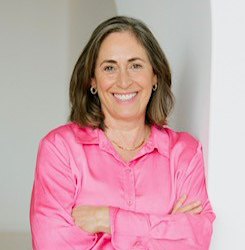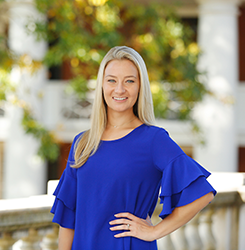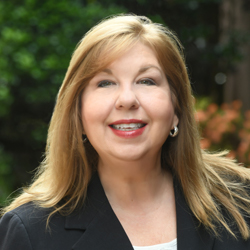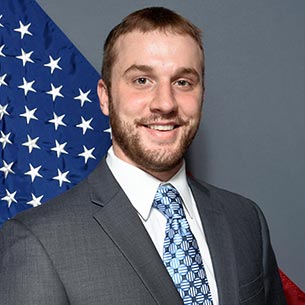Virginia Collaborative Divorce Law Firm
Collaborative divorce is an alternative approach to traditional combative divorce. Our trained collaborative law attorney uses collaborative divorce to help our clients and their families move beyond the divorce and forward with their lives. We can help. Call us.
Lynn A. Bradley – Collaborative Divorce Attorney
Testimonials:
“Working with Lynn Bradley on my divorce through the collaborative process humanized what can so often be a depleting experience. We made our family rather than our differences the focus of our attention. I realize we will always be a certain kind of family, whether we are in the same house or not, and this process set the groundwork for a future where we can communicate and co-parent without being divisive or hurtful to our children.”
“When Lynn suggested collaborative law, I was skeptical at first. We had been in litigation fighting our way through the court system for six years and had already failed at mediation. I figured we had nothing to lose so we started the process and within six meetings had a signed agreement. I am still amazed by how it turned out!”
“I felt so supported through the entire collaborative process. It wasn’t easy but we arrived at a fair agreement that was best for our family.”
“My wife and I communicate better than ever now! Not only do we have a solution that works for now but the tools to resolve issues that will arise as our children get older.”
Contact us today for an Initial Consultation. It’s the first step to putting your life back together.
10 frequently asked questions about VA collaborative divorce cases:
1. What is collaborative divorce law?
Collaborative law is a new way to complete a divorce. Each party has a separate and specially trained attorney. The lawyer’s job is to help the parties settle the case. If the attorneys do not succeed in helping the clients settle, the attorneys are out of the case. They never can represent either client against the other in a combative, traditional divorce.
2. What is the difference between collaborative law and mediation?
In mediation, one neutral person helps both parties settle their case. Mediation can be challenging where the parties are not on a level playing field with each other. A mediator cannot give either party legal advice or help either side advocate a position. In collaborative law each person is represented by an attorney who supports their client to express what is important to him or her.
Each client also receives timely legal advice so they can be fully informed when they reach a settlement. Even if one side lacks negotiating skill or financial understanding, or is emotionally angry, the collaborative lawyer assures that his or her client has the information they need to make good decisions. The lawyers also work with their own clients if they are being unreasonable. This assures the process stays positive and productive.
3. How is collaborative law different from the traditional adversarial process?
- Everyone takes part in an open, honest exchange of information.
- Both parties keep their children out of the dispute. The children are shielded from the conflict.
- Both parties use joint accountants, appraisers, and other consultants, instead of adversarial experts.
- The lawyers either guide the process to settlement or withdraw from further participation, unlike adversarial lawyers, who remain involved whether the case settles or is tried.
- Neither party is disadvantaged by lack of funds, a frequent problem in adversarial litigation.
4. What are the mechanics of collaborative law?
- Both parties and their professionals will meet together as often as necessary.
- Both parties and their attorneys will sign an agreement not to go to court.
- During these meetings both parties and their professionals will identify individual concerns and goals, explore a wide range of possible choices, and work together to reach mutually acceptable solutions.
- The clients – not their attorneys or a judge – will make the decisions.
5. How is information gathered in the collaborative process?
Both sides sign a binding collaborative law agreement to disclose all documents and information that relate to the issues early, fully and voluntarily. “Hide the ball” and stonewalling are not permitted. Both lawyers work to assure complete disclosure of needed information.
6. Is collaborative divorce law the best choice for me?
It isn’t for every client, but it is worth considering if some of the following are true for you:
- You want a civilized and respectful settlement of the issues.
- You want to keep open the possibility of friendship with your spouse.
- You want to protect your children from the harm that goes along with litigation.
- You value privacy and do not want details of your problems aired in the public.
- You and the other party will commit your intelligence and energy toward creative problem solving rather than toward accusation or revenge.
7. Why is it so important to sign a binding collaborative agreement? Why can’t you work collaboratively with the other lawyer and your spouse, but still go to court if it doesn’t work?
Collaborative law sparks creative conflict resolution only when the lawyers and clients all are pulling together in the same direction to solve the same problems in the same way. When everyone knows that it is up to the four of them to think their way to a solution, does the special creativity of collaborative law get triggered. It is also important that both spouses can disclose information and propose solutions without fear that it will later be used against them if the process doesn’t result in an agreement.
8. How do I enlist the other party to do collaborative law?
Talk with the other party. See if there is a shared commitment to collaborative, win-win conflict resolution. Our firm can provide materials to share with the other party. We have a list of local experienced and trained collaborative lawyers for your spouse to consult.
9. My lawyer says she settles most of her cases. How is collaborative law different from what she does when she settles cases in a conventional law practice?
Any experienced collaborative lawyer will tell you that there is a big difference between a settlement that is negotiated during the conventional litigation process, and a settlement that takes place in the collaborative process. Most conventional family law cases settle figuratively, if not literally, “on the courthouse steps.”
By that time, a great deal of emotional damage has been caused and money spent. Moreover, the settlements that are reached in the shadow of trial, are generally shaped by what the lawyers believe the judge in the case is likely to do. This is very different from what happens in a typical collaborative law settlement. From the first day, the process is geared toward creative, respectful collective problem solving. It is less stressful on all involved.
10. What is your fee structure?
We handle collaborative divorce cases on an hourly basis. We offer free initial consultations, and at the end of the consultation, we can evaluate our services and decide if you want to hire us.
Your Next Step:
Contact us today – We’re ready to help.
We have three offices conveniently located in Charlottesville, Palmyra (Across from Food Lion), and Harrisonburg, Virginia.

























